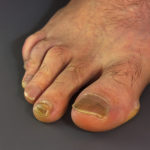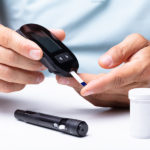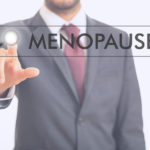By Bonnie Jenkins, Advanced Natural Wellness
My mother-in-law has suffered from severe heartburn for years. And, along with popping hundreds of antacids and watching what she ate, she has seen at least a dozen doctors. Because most of them assumed the problem was too much acid, they would whip out their prescription pads, ready to write a script for a proton-pump inhibitor. Others had suggested surgery to move pieces and parts of the digestive system to prevent the painful acid reflux.
But, even though these doctors were offering the best modern medicine has to offer, the premise they started with was a faulty one. It turns out, the burning sensation wasn’t from too much stomach acid – it was from too little!
Missing the Mark
Ever since the invention of antacids, stomach acid has gotten a bad rap. But, the truth is, our digestive system would shut down without it.
Here’s how it works: After you eat, stomach acid breaks down large food particles before the food moves into the intestines. If there isn’t enough stomach acid, these large food particles can sit in the stomach for hours instead of being quickly passed into the intestines, where the nutrients from the food are absorbed. This undigested food can back up in the stomach and start to push its way up into your esophagus, creating burning and discomfort.
The problem is, we’ve been conditioned to take an over-the-counter antacid to alkalize away the pain. Sure, it will make the burning sensation disappear temporarily, but it doesn’t address the underlying cause. Instead, you keep popping a chewable tablet every time the burn begins, causing a vicious cycle.
The same thing can happen if your doctor has put you on a proton-pump inhibitor like Nexeum. But, again, because these drugs are designed to treat the symptoms instead of the cause, you may find yourself taking them for years.
Open your arteries, improve blood flow for a new health miracle...
Did you know your circulatory system has over 60,000 miles of arteries, veins and other blood vessels, if stretched end to end?
But as you age, your blood vessels undergo changes, which may cause them to stiffen, thicken and get clogged.
GOOD NEWS! Doctors have now identified a “Miracle Molecule” inside your arteries that helps OPEN your arteries and IMPROVE blood flow.
It’s what Dr. Valentin Fuster calls it, "One of the most important discoveries in the history of cardiovascular medicine."To you, that means...
- Healthy blood pressure
- Sharper mind and memory
- Skyrocketing energy and muscular strength
- Increased pleasure and passion in the bedroom
- Improved circulation to every cell and organ in your body
Go here to discover a new natural way to significantly boost the levels of this miracle molecule in YOUR body NOW!
The Acid Test
There are a number of things that can cause your stomach acid levels to decrease. Stress and long-term antacid use are some of the most common reasons. Plus, our stomach acid levels decrease as we age, which explains why more people develop indigestion as they age.
So how can you tell if you have too little stomach acid? One test is called the Heidelberg Stomach Acid Test. This high-tech test is performed in a physician’s office. In this test the patient swallows a capsule that measures the level of stomach acid and transmits the information back to a computer.
But there’s another, do-it-yourself test that simply involves taking a tablespoon of apple cider vinegar when symptoms arise. Vinegar has a low pH, which means that like stomach acid, it is highly acidic. If you take a tablespoon of vinegar, and your symptoms vanish, it’s likely that you have low stomach acid.
How Do You Spell Relief?
My mother-in-law finally got some relief – no thanks to her doctors! A friend suggested that she see a local naturopathic doctor who immediately – and correctly – assessed the problem. The solution? A supplement called betaine HCL that mimics your own stomach acid.
But boosting your hydrochloric acid levels won’t just ease your symptoms. HCL renders your stomach sterile against orally ingested pathogens. It also prevents bacterial and fungal overgrowth in your small intestine, encourages the flow of bile and pancreatic enzymes, and aids the absorption of folic acid, vitamin C, beta-carotene, iron, calcium, magnesium and zinc.
The World's Quickest Solution for Ending Prostate and Urinary Misery
This has recently been revealed to be one of the only real breakthroughs in prostate health.
The seeds of a strange fruit (sometimes called "Chinese Apples") hold powerful phytonutrients that are a revolution in prostate health.
In fact, UCLA and Veterans Administration research have now proved this to be true.
Not only that, but it may be the worlds quickest solution for ending prostate misery.
Simply stated, these phytonutrients represent a huge step beyond beta sitosterol, saw palmetto, and other phytosterols alone.
Simply click HERE if you want to have fast prostate relief...restful, uninterrupted sleep...no more constant "urges to go"...enhanced virility...and optimal prostate support for life.
Numerous studies show that the secretion of stomach acid declines as we get older. In fact, it’s estimated that 30 percent of people over 60 produce little or no stomach acid – and 40 percent of postmenopausal women have low gastric levels. This decline can increase the risk that the nutrients in your food aren’t being absorbed. There’s also some speculation that low levels can contribute to a variety of conditions like osteoporosis, asthma, eczema, chronic hives, psoriasis, arthritis, thyroid disorders, gastrointestinal infections and even parasites.
If you do have low stomach acid levels, most naturopaths recommend taking 325 to 650 mg. of betaine with a meal that contains protein. But don’t overdo it. Large amounts of supplemental betaine can burn the lining of the stomach. If you do experience a burning sensation, stop taking betaine immediately.
Taking a low dose of betaine is a safe way to rebalance your stomach acid levels. But if you have a history of ulcers or if you take non-steroidal anti-inflammatory drugs (NSAIDs), cortisone or other medications that could cause a peptic ulcer, check with a naturopath or nutritionally focused doctor before taking this supplement.
One Last Thing …
If you take the vinegar test and don’t experience relief, it is possible that your body really is pumping out too much stomach acid. But, instead of relying on antacids, try some licorice. Long before Tums burst onto the scene, herbalists relied on plants to treat heartburn. Today, licorice is considered a first-line defense against that burning sensation, because it promotes healing and guards against recurrence.
But not any licorice will do. Ordinary licorice root can raise blood pressure if used on a daily basis for more than a week. Opt instead for chewable deglycyrrhizinated licorice tablets (DGL), a safe and effective form of the herb. Studies show that DGL may be as effective as many over-the-counter drugs or pharmaceuticals. It also soothes and heals the mucosal lining in the digestive tract.
A preliminary trial found that while the acid-blocking drug cimetidine led to quicker symptom relief, chewable DGL tablets were just as effective at healing the gut. DGL may also be helpful in treating ulcers. But forget about taking licorice in capsule form. DGL must mix with saliva to be activated.
For acute heartburn, the German Commission E recommends chewing 2 to 4 tablets before each meal. You can also pop a couple of tablets whenever heartburn strikes.
This Just in …
Are you looking for a good alternative health practitioner? If so, forget the yellow pages. Instead, whether it’s an acupuncturist, naturopath or integrative physician, it’s smart to go directly to the source. Here are some resources to help you get started:
Traditional Chinese Medicine Doctor: Those practicing this 3,500-year-old healing art use Chinese herbs, Oriental bodywork and acupuncture to balance your body’s rhythms and energy currents. To find a board-certified practitioner in your area, check with the National Certification Commission for Acupuncture and Oriental Medicine (nccaom.org).
Acupuncturist: When your body’s energy – known in the Orient as qi – gets stuck or becomes deficient, it can cause disease, muscle soreness, depression, anxiety and more. To restore natural balance, acupuncturists stick a series of extremely thin needles into specific points on the body. They can also aid in weight-loss or smoking cessation. Make sure your acupuncturist is NCCAOM-certified.
Naturopathic Doctor: These specialists foster the body’s power to heal itself and look at the whole person rather than just the body part. Have a cold? A naturopathic practitioner will skip symptom-suppressing drugs in favor of dietary supplements, herbal medicines, nutritional changes and physical therapies designed to boost immunity. Look for a licensed naturopath with ND after his name or get a referral from the American Association of Naturopathic Physicians (naturopathic.org).
Homeopathic Practitioner: This 200-year-old practice is based on the idea that miniscule amounts of substances that cause symptoms can be used to cure the same symptoms. Because there is a wide variety of certifications and licenses, it’s best to look for a homeopath who is also a licensed ND or MD. The National Center for Homeopathy (nationalcenterforhomeopathy.org) provides a good starting point.
Integrative Medicine Practitioner: Integrative medicine began in the early 1990s, when an increasing number of doctors started incorporating aspects of holistic medicine into their practices. What makes an integrative physician different from a naturopath or TCM practitioner? All of their methods – body work, nutrition, supplements, electromagnetic treatment and spiritual healing – have been scientifically proven. While any MD can dabble in integrative medicine, it’s wise to look for a doctor who is a “fellow” or “diplomate” with the American Association of Integrative Medicine (aaimedicine.com).
References:
Abdelmalek MF, Angulo P, Jorgensen RA, et al. “Betaine, a promising new agent for patients with nonalcoholic steatohepatitis: results of a pilot study.” American Journal of Gastroenterology . 2001;96:2711-2717. Aoki F, Nakagawa K, Kitano M, et al.
“Clinical safety of licorice flavonoid oil (LFO) and pharmacokinetics of glabridin in healthy humans.” Journal of the American College of Nutrition. 2007;26:209-218.
“Betaine Hydrochloride.” Alternative Medicine Encyclopedia. 2005.
Craig SA. “Betaine in human nutrition.” American Journal of Clinical Nutrition. 2004;80:539-549.
Lentini J, Taure C, Escala C. “Hypochylia in the aged. Its treatment with an acid combination of pepsin and vitamins.” Revista española de las enfermedades del aparato digestivo. 1970; 31:525-544.






